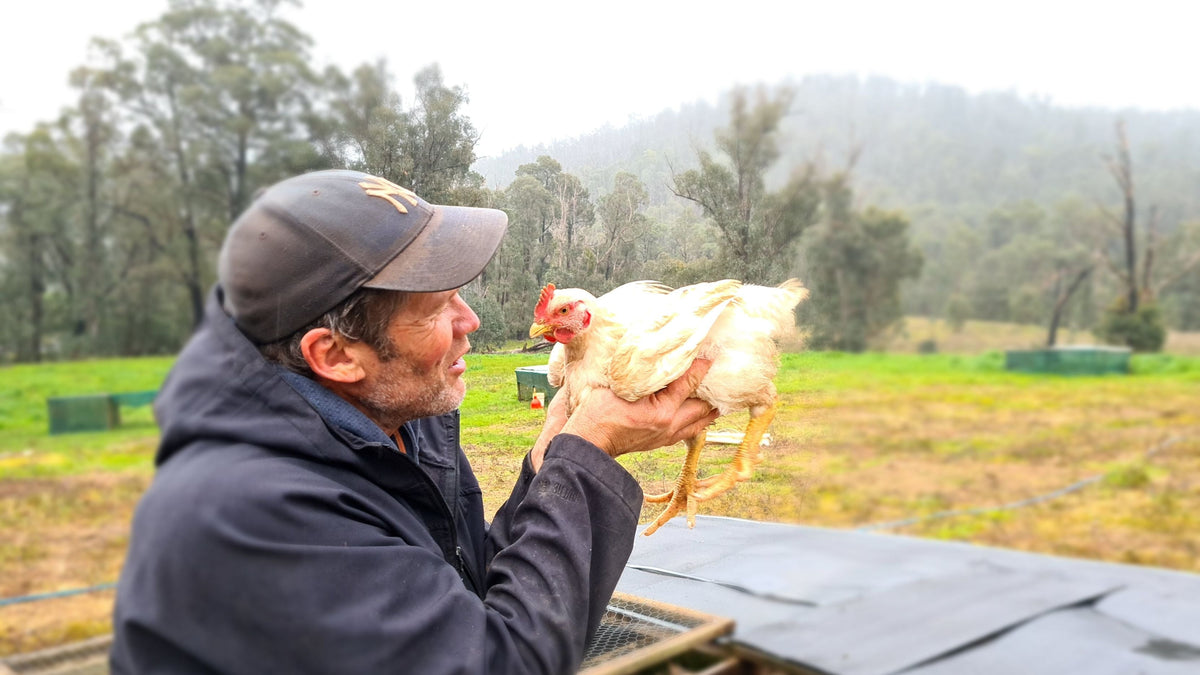
Why is our chicken fat yellow?
|
Time to read 1 min
|
Time to read 1 min
So you've ordered some pasture raised chicken, you open the bag, and it looks a little...yellow. Continue reading to find out why.
Dirty Clean Food pasture raised chicken is grown by Ewen Nettleton of Unison Farms and Steph and Sam Hondema of Rosa’s Ridge and processed by Jeff Pow and his team at their on farm micro abattoir at Southampton Homestead.
Why is our chicken fat yellow? Because this is how nature intended chicken meat and fat to look! For too long we have been eating shed raised or free range chicken with little to no access to soil, grass and bugs. Our Dirty Clean Food chickens spend their entire lives (once fully feathered) living on pasture.
When the chickens are allowed to forage on natural pastures, they eat a diverse mixture of plants and insects along with a range of different bugs and worms. These lucky chickens also get a microbial boost with a special fermented feed designed to optimise their gut health.
The darker meat and yellow chicken fat is the result of a grass-based diet which is high in chlorophyll.
The cartenoid beta carotene in the grass is the same as the orange colour found in carrots. This is what produces the yellow fat in chickens as well as the bright yellow yolks in pastured eggs.
The difference in the health benefits, including cardiovascular benefits of eating grass-fed chickens and eggs is simple - more nutrients. Pasture raised poultry is higher in Vitamin E, monounsaturated fat, Omega-3 and lower in the ratio of Omega-6 to Omega-3 than grain fed chickens.
Shed raised or free range broilers (meat chickens) have pale flesh and fat that is very white. This is due to the difference in diet and conditions of how large scale shed raised chickens are kept.
Raising pastured chickens does take longer than in a shed raised or free range farming system. Those chickens are processed at 26 days old, whereas our chickens are processed at 8 - 10 weeks old, which is 2 - 2.5 times longer than their commercially raised counterparts. The slower growth rate also contributes to the texture and flavour of our chicken, as well as the colour of the flesh and fat.
Along with being healthier for us, this diet and lifestyle is also much healthier for the chickens, and for our chicken farmers!



